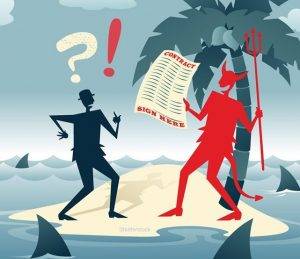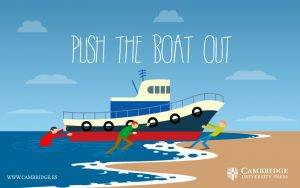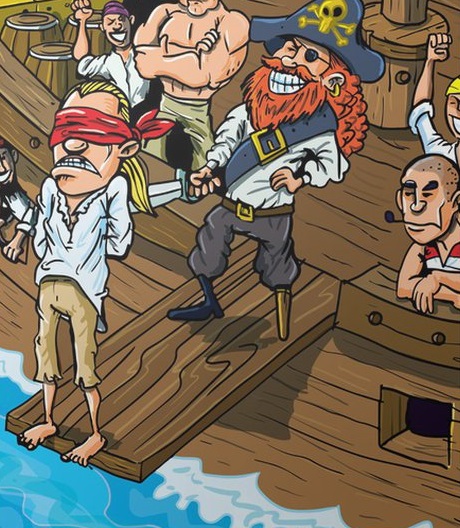Sailing Phrases and Nautical Terms
Sailing Phrases and Nautical Terms used in everyday language sound so natural. Their origin stems from the centuries’ old tradition of sailing. We all use them, without even considering their provenience or initial meaning. Let’s check out some of these common expressions that have enriched our language.
All at sea
It’s quite funny, but this sailing expression doesn’t mean you’re literally in the sea. It actually means that you’re confused.
Above board
This expression refers to being honest. It dates back in the days when pirates used to hide below the board so that they would trick the other vessels.
At a loose end
When you have a loose end, it means that you have a loose rope that’s not attached to anything. Similarly, if you’re at a loose end, you don’t have a precise plan or idea in mind.
Between the Devil and the deep blue sea
When you find yourself between the Devil and the deep blue sea, you have to make a choice, and both existing alternatives are potentially dangerous.

Binge
Nowadays refers to doing something in abundance (eating, drinking). Nonetheless, it was originally meant to soak a vessel or to rinse something.
By and large
If you consider things generally, you think about them by and large, or on the whole.
Calm before the storm
This is one sailing expression I’m sure you’ve already used or heard. Additionally, this term means there is a period of peace and quietness before a period of turbulence.
Cut and run
This expression means doing something in a hurry. Its origins can be explained by the fact that back in the old days, sailors used to cut the rope of the anchor in order to depart in haste.
Give a wide berth
Give a wide berth means giving somebody sufficient space. It derives from the word ‘berth’, the place where you can accommodate your boat in a port, which has to be large enough.

Going overboard
You can literally go overboard, that is fall in the water. However, this phrase can also mean being too enthusiastic about a particular thing or going to extremes.

Hand over fist
If you’re making something hand over fist, you’re making it happen very fast.
High and dry
If you’re high and dry, you feel helpless, you’re stuck and you don’t know how to get out. Literally, this sailing phrase refers to stranded ships remaining on the shore after the water retreats.

Know the ropes
If you know the ropes, you are able to do something because you know how to handle things, just like a sailor who knows how to maneuver the ropes of the boat.
Loose cannon
A loose cannon is someone or something that acts unpredictably, being potentially dangerous. Centuries ago, warships carried cannons that had to be secured with ropes for safety reasons. If a canon was loose, it was not tied and it represented a danger.
On your beam ends
This sailing phrase means being in a bad situation, just like when the beams of the boat touch the sea, putting it in danger.
On an even keel
This one refers to being in a stable, balanced situation, just like a boat that is not leaning on any side.
Overwhelm
In sailing tradition, overwhelmed referred to overturning the vessel. Nowadays it means being overcome by your emotions.
Push the boat out
It means spending more than you normally do, usually to celebrate an important event.

Posh
The initials POSH labeled the luggage of rich passengers. They meant port out, starboard home and referred to the fac that rich people got the best berths on the ship. Today, it means high-class.
Rocking the boat
To rock the boat means to upset someone or to cause a disturbance.
Square meal
A square meal means a lavish and satisfactory meal. In the past, sailors ate from square platters.
Taken aback
Nowadays it means very surprised or startled. Originally, it referred to being positioned backwardly, facing the boat’s rear.
To be in deep water
To simply put it, when you’re in deep water, it means you’re actually in deep trouble … something we hope you won’t be experiencing any time soon.

Tide over
Tide over refers to making sure something lasts until new resources are available.
Walk the plank
Can refer to someone being forced to give up their job. It describes the form of execution adopted by pirates who forced people to walk on the plank blindfolded and with tied hands and fall in the sea.

These are some of our favorite sailing phrases. There are plenty others out there, but we’re sure you will discover them on your own.
Check out the sailing terms you need to know.

